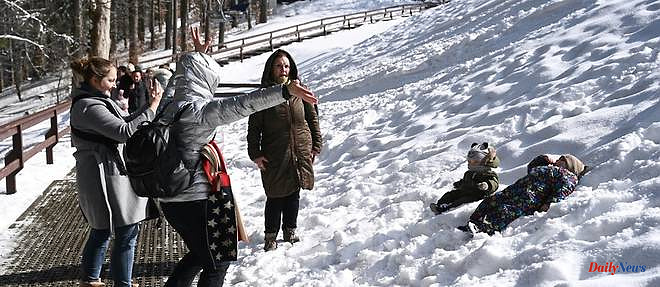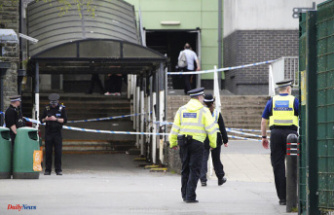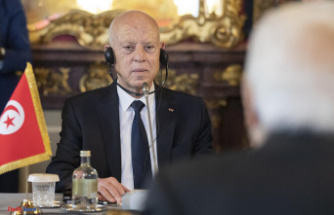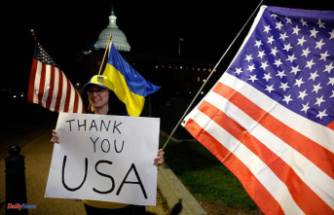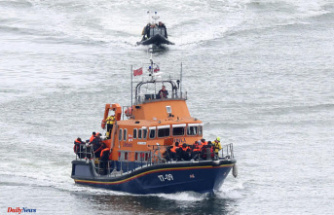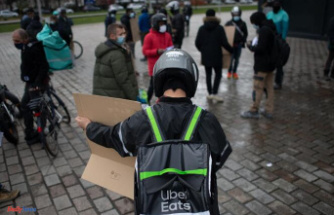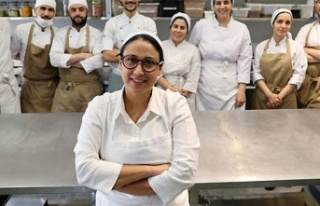Far from the warning sirens and the fear of Russian strikes, Svetlana Kocievska savors the calm of Bukovel, a ski resort nestled in the Carpathian fir trees in the far west of Ukraine.
Her two little ones are frolicking in the pure air in the snow, a rare moment of joy offered by their grandparents.
"They bear the brunt of the psychological impact of the conflict," says the 33-year-old dentist from the central region of Vinnytsia.
"Schooling at home, without contact with their peers, is bad for their brains," she told AFP.
Liliya, who prefers to keep her last name secret for reasons of confidentiality, also welcomes this welcome respite after a year of torment.
By her side, her eight-year-old daughter and her military husband, who is taking a few days off. All three come from the Sumy region, just 20 km from the border with Russia.
"Here, we try to forget the war," confides the feverish young woman, one eye on her phone which signals her "three to four times a day" the alerts at home.
An English interpreter, she had taken refuge in Germany after the Russian invasion, but she returned after three months to find her husband.
Perched at an altitude of 1,300 meters above the village of Polyanytsya, the upscale Bukovel area covers 75 km of slopes and has 17 ski lifts.
This famous resort attracted a crowd of visitors before the war, including many foreign tourists.
Now, they are rare and many real estate projects, which had grown over the rapid expansion of places, are abandoned.
"The atmosphere is very different now," says ski instructor Bogdan Nakonechniy, red jacket and helmet screwed on his head.
At 26, he is in his third season and remembers the past crowds. “We have fewer people this year and those who are there are very emotional, on edge. They appreciate every moment stolen from the war”, underlines the instructor.
On the tracks, women and children rub shoulders with men too old to fight.
“99% of our customers are Ukrainians,” confirms Taras Humenyuk, an employee in a ski clothing store. “Previously 30% came from other countries, now it is limited to occasional visits from neighboring Romanians or Moldovans.”
For this store, the challenge is also logistics. Almost the entire stock of equipment, from anoraks to shoes in the central warehouse, located on the outskirts of kyiv, was destroyed at the start of the conflict by a Russian missile attack.
"We are still struggling to be supplied. Foreign brands do not want to send us goods for fear of not being paid", explains the young employee with glasses.
Faced with the drop in attendance, Natalia Havrylenko, 48, chose to transform her hotel-restaurant into a place "at the service of society".
Generators, Starlink internet connection: When Russian troops targeted energy infrastructure across Ukraine last year, locals gathered in this space to "be quiet and work uninterrupted".
With the victory, the tourists will come back, she breathes serenely.
Not far away, a hut sells drinks to warm up skiers. Cherry liqueur, launches the bearded Vladislav Fedchuk, a 22-year-old seasonal worker from Lviv.
"Ukraine will win and soon we will get back to normal life. Who knows, maybe one day I can even learn to ski," he smiles.
07/03/2023 18:11:31 - Bukovel (Ukraine) (AFP) - © 2023 AFP

